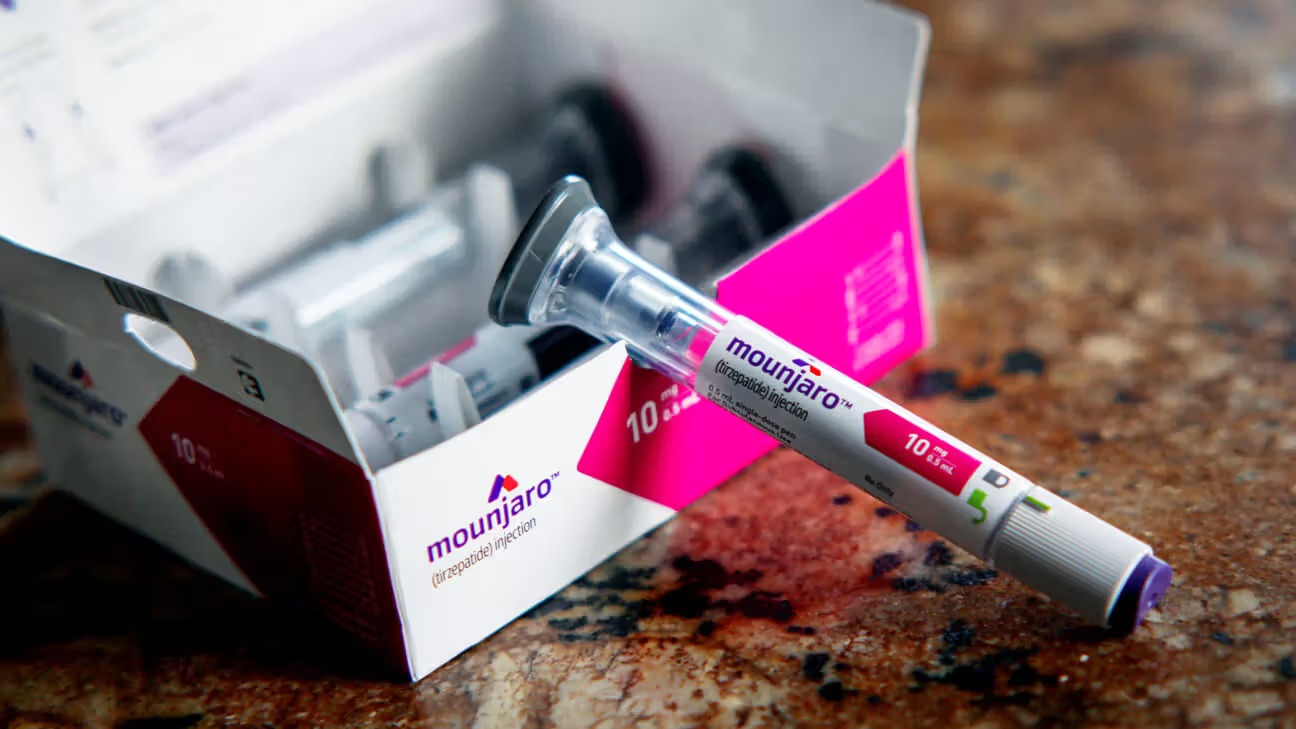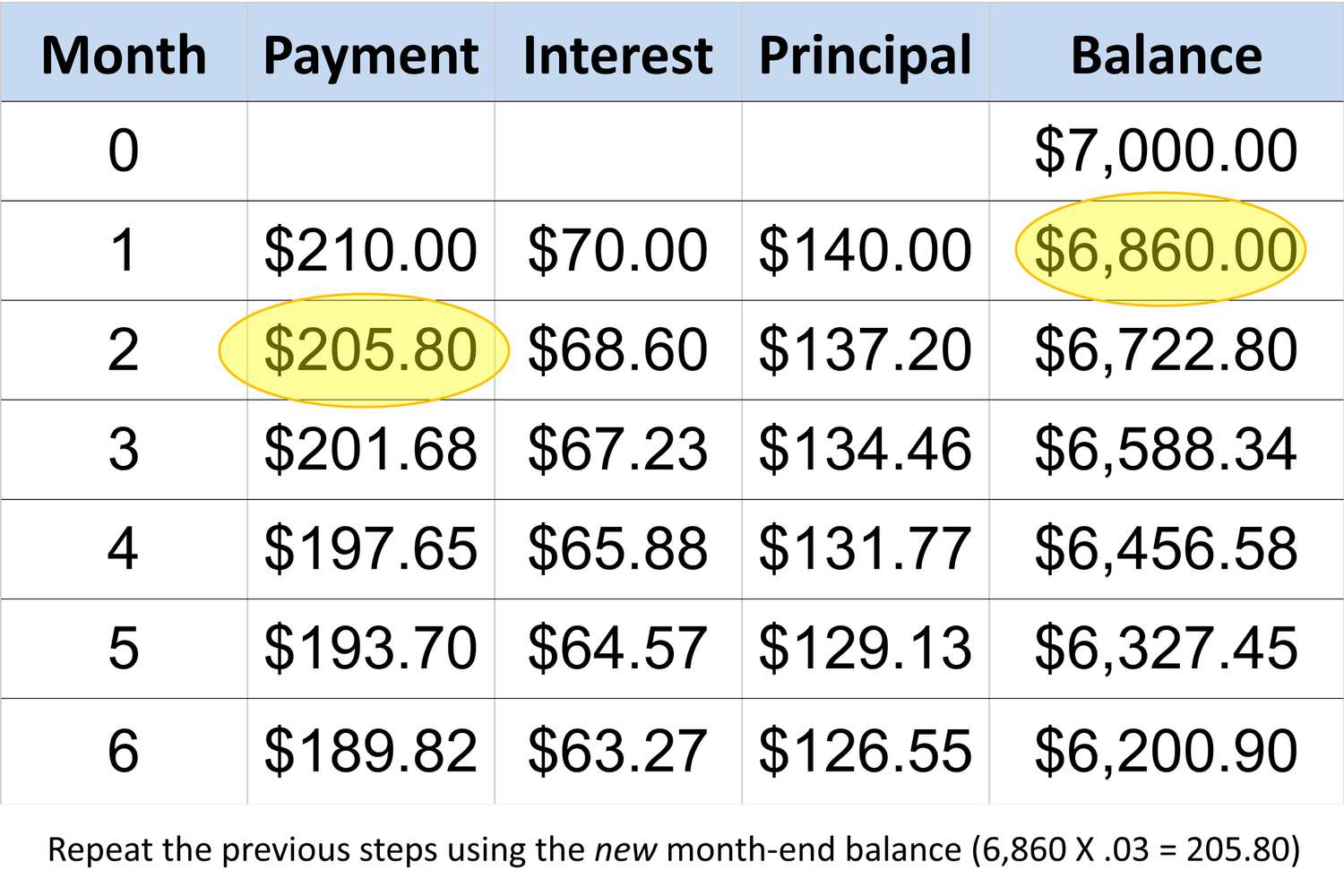

Finance
What Insurance Covers Nexplanon
Published: November 6, 2023
Learn how insurance can help cover the cost of Nexplanon and how it can affect your financial situation. Explore options for financing your contraceptive needs.
(Many of the links in this article redirect to a specific reviewed product. Your purchase of these products through affiliate links helps to generate commission for LiveWell, at no extra cost. Learn more)
Table of Contents
- Introduction
- What is Nexplanon?
- Importance of Having Insurance Coverage
- Types of Insurance Policies that Cover Nexplanon
- Private Health Insurance Coverage
- Medicaid Coverage
- Affordable Care Act (ACA) Coverage
- Employer-Sponsored Health Insurance Coverage
- Factors to Consider in Insurance Coverage for Nexplanon
- Conclusion
Introduction
Insurance coverage plays a vital role in safeguarding our health and providing financial protection against unexpected medical expenses. When it comes to contraceptive methods like Nexplanon, having the right insurance coverage is crucial for individuals who wish to access this form of birth control. Nexplanon is a small implant that is inserted into the arm and releases a hormone to prevent pregnancy. It is a highly effective, long-lasting option that many individuals choose for its convenience and reliability.
However, without proper insurance coverage, the cost of Nexplanon can be a significant financial burden. That is why it is important to understand the various types of insurance policies that cover Nexplanon and the factors to consider when seeking coverage. In this article, we will explore the different insurance options available and the key points to consider when choosing an insurance provider.
Having insurance coverage for Nexplanon not only allows individuals to access this convenient and effective birth control method, but it also helps to promote overall reproductive health and family planning. Insurance coverage ensures that individuals can make the best choices for their own well-being without worrying about the financial implications.
Now, let’s delve into the different types of insurance policies that provide coverage for Nexplanon, including private health insurance, Medicaid, Affordable Care Act (ACA) plans, and employer-sponsored health insurance.
What is Nexplanon?
Nexplanon is a highly effective and convenient contraceptive method that is often referred to as a “birth control implant.” It is a small, flexible rod about the size of a matchstick that is inserted beneath the skin of the upper arm. This thin rod contains a synthetic hormone called etonogestrel, which is slowly and continuously released into the body over a period of up to three years.
The hormone released by Nexplanon works by preventing ovulation (the release of eggs from the ovaries), thickening the cervical mucus to block sperm from reaching the eggs, and thinning the lining of the uterus to make it less receptive to implantation. With its effectiveness rate of over 99%, Nexplanon is one of the most reliable forms of contraception available.
One of the major advantages of Nexplanon is its convenient and long-lasting nature. Once the rod is inserted, it provides continuous contraceptive protection for up to three years, making it suitable for individuals who do not want to worry about taking a daily contraceptive pill or using other forms of birth control on a regular basis. Additionally, Nexplanon is reversible, meaning that fertility usually returns quickly after its removal.
It is important to note that Nexplanon does not protect against sexually transmitted infections (STIs). Using barrier methods, such as condoms, in combination with Nexplanon is recommended to reduce the risk of STIs.
Nexplanon is a safe and well-tolerated contraceptive option for many individuals. However, it may not be suitable for everyone. It is essential to consult with a healthcare professional to determine if Nexplanon is the right choice based on an individual’s medical history, lifestyle, and personal preferences.
Now that we have a better understanding of what Nexplanon is and how it works, let’s explore the importance of having insurance coverage for this contraceptive method.
Importance of Having Insurance Coverage
Insurance coverage for Nexplanon is essential for individuals who wish to access this highly effective and convenient contraceptive method. Here are some reasons why having insurance coverage for Nexplanon is important:
- Financial Protection: Without insurance coverage, the cost of Nexplanon can be a significant expense for many individuals. Insurance coverage helps alleviate the financial burden by covering some or all of the cost of the contraceptive implant. This allows individuals to obtain Nexplanon without worrying about the high out-of-pocket costs.
- Access to Affordable Birth Control: Insurance coverage ensures that individuals have affordable access to long-lasting and reliable contraception. With Nexplanon being one of the most effective contraceptive methods available, having insurance coverage allows individuals to make informed choices about their reproductive health without cost being a barrier.
- Promoting Reproductive Health: Insurance coverage for Nexplanon promotes reproductive health by providing individuals with the means to plan their families and control their fertility. Access to affordable contraception helps individuals make decisions about when to have children, pursue education or career goals, and maintain overall well-being.
- Reduced Healthcare Costs: Insurance coverage for Nexplanon can help reduce overall healthcare costs. By preventing unintended pregnancies, Nexplanon reduces the need for unplanned prenatal care, childbirth services, and potential complications that may arise from unwanted pregnancies. Insurance coverage helps mitigate these potential healthcare expenses.
- Choice and Autonomy: Having insurance coverage for Nexplanon gives individuals the autonomy to choose the contraceptive method that suits their needs and preferences. It ensures that individuals can make informed decisions about their reproductive health without being limited by financial constraints.
In summary, insurance coverage for Nexplanon is important as it provides financial protection, promotes reproductive health, reduces healthcare costs, and empowers individuals with choice and autonomy. Now that we understand the significance of having insurance coverage for Nexplanon, let’s explore the different types of insurance policies that cover this contraceptive implant.
Types of Insurance Policies that Cover Nexplanon
There are several types of insurance policies that provide coverage for Nexplanon. Understanding these insurance options is crucial for individuals who are seeking insurance coverage for this contraceptive method. Here are the main types of insurance policies that cover Nexplanon:
- Private Health Insurance: Many private health insurance plans cover Nexplanon as part of their contraceptive coverage. These plans vary in terms of their coverage levels, deductibles, and copayments. It is essential to review the specific details of the insurance policy to determine the extent of coverage for Nexplanon.
- Medicaid Coverage: Medicaid, a government-funded insurance program, provides coverage for Nexplanon for eligible individuals who meet the program’s income and other requirements. Medicaid coverage varies from state to state, so it is important to check with the local Medicaid office or healthcare provider to determine the specific coverage details for Nexplanon.
- Affordable Care Act (ACA) Coverage: The Affordable Care Act, also known as Obamacare, mandates that most insurance plans cover prescription contraceptives, including Nexplanon, without cost-sharing. This means that individuals with ACA-compliant insurance plans should have access to Nexplanon without any out-of-pocket expenses.
- Employer-Sponsored Health Insurance: Many employer-sponsored health insurance plans include coverage for contraceptives, including Nexplanon. The coverage details may vary depending on the specific plan, so individuals should consult with their employer or insurance provider to understand the coverage provisions for Nexplanon.
It is important to note that even though these insurance policies generally cover Nexplanon, individual coverage may vary. Deductibles, copayments, and limitations on coverage may apply. Therefore, it is crucial to review the specific terms of the insurance policy to determine the extent of coverage for Nexplanon.
Furthermore, it is recommended to consult with a healthcare provider or contact the insurance company directly to confirm the coverage details and make sure that Nexplanon is included in the preferred drug formulary of the insurance plan.
Now that we have explored the different types of insurance policies that cover Nexplanon, let’s discuss the factors to consider when seeking insurance coverage for Nexplanon.
Private Health Insurance Coverage
Private health insurance is one of the common types of insurance policies that provide coverage for Nexplanon. Many private health insurance plans include contraceptive coverage as part of their benefits package, which typically encompasses Nexplanon along with other forms of birth control.
The coverage details for Nexplanon under private health insurance plans may vary. Some plans may cover the full cost of Nexplanon, while others may require individuals to pay a deductible or a copayment. It is essential to carefully review the insurance policy documents or contact the insurance provider to understand the specific coverage provisions and potential out-of-pocket costs.
When considering private health insurance coverage for Nexplanon, it is important to take into account the following factors:
- Network Coverage: Check if the insurance plan has a network of healthcare providers that offer Nexplanon insertion. It is essential to choose a healthcare professional who is in-network to minimize out-of-pocket expenses.
- Formulary Coverage: Ensure that Nexplanon is included in the preferred drug formulary of the insurance plan. This will ensure that the cost of the contraceptive implant is covered by the insurance policy.
- Coverage Limits: Understand the coverage limits of the insurance policy. Some plans may limit the number of Nexplanon insertions covered within a specific time frame, so it is important to be aware of these restrictions.
- Cost-Sharing Details: Familiarize yourself with any deductibles, copayments, or coinsurance amounts that may apply to Nexplanon coverage. These cost-sharing factors can impact the overall affordability of accessing Nexplanon through private health insurance.
- Exclusions or Limitations: Take note of any exclusions or limitations stated in the insurance policy regarding coverage for Nexplanon. For example, certain plans may have age restrictions or specific medical criteria that need to be met for coverage.
It is recommended to compare different private health insurance plans to find one that offers comprehensive coverage for Nexplanon while meeting your individual healthcare needs. Consulting with an insurance broker or reaching out to the insurance companies directly can provide helpful information and guidance in selecting the most suitable private health insurance policy.
Now, let’s move on to explore another type of insurance coverage for Nexplanon – Medicaid coverage.
Medicaid Coverage
Medicaid is a government-funded insurance program that provides healthcare coverage to low-income individuals and families. It is an important resource for those who may not have access to private health insurance. Medicaid coverage includes coverage for prescription contraceptives, including Nexplanon.
The specific details and eligibility criteria for Medicaid coverage vary from state to state. Income guidelines, household size, and other factors are taken into consideration when determining eligibility for Medicaid. In general, individuals and families with limited income may qualify for Medicaid and receive coverage for Nexplanon.
When seeking Medicaid coverage for Nexplanon, it is important to consider the following:
- State-Specific Coverage: Medicaid coverage for contraceptives, including Nexplanon, may differ from state to state. Therefore, it is crucial to check with the local Medicaid office or healthcare provider to understand the specific coverage details and requirements in your state.
- Income Eligibility: Ensure that you meet the income criteria set by your state’s Medicaid program. Income limits can vary, so make sure to review the guidelines to determine if you qualify for Medicaid coverage.
- Application Process: Familiarize yourself with the application process for Medicaid in your state. This may involve submitting documentation and meeting certain requirements. Enlisting the help of a healthcare navigator or applying online through the official Medicaid website can streamline the application process.
- Coverage Limitations: Understand any limitations or restrictions on Medicaid coverage for Nexplanon. Some states may have specific guidelines on the number of Nexplanon insertions covered within a certain period.
- Provider Network: Confirm if the healthcare providers in your area accept Medicaid and offer Nexplanon insertion. It is important to choose a healthcare professional who is within the Medicaid network to ensure coverage.
Medicaid provides an important avenue for individuals and families with limited income to access Nexplanon and other essential healthcare services. By understanding the specific Medicaid coverage options in your state and following the necessary steps for enrollment, you can take advantage of this valuable program to obtain coverage for Nexplanon.
Now that we have covered Medicaid coverage, let’s move on to explore Affordable Care Act (ACA) coverage for Nexplanon.
Affordable Care Act (ACA) Coverage
The Affordable Care Act (ACA), also known as Obamacare, mandates that most insurance plans provide coverage for prescription contraceptives, including Nexplanon. This means that individuals with ACA-compliant insurance plans should have access to Nexplanon coverage without cost-sharing or out-of-pocket expenses.
Under ACA coverage, individuals can obtain Nexplanon with no copayments or deductibles, making it an affordable and accessible option for many people. This ensures that individuals have the opportunity to make the best choices for their reproductive health without being burdened by high costs.
It is important to note that not all insurance plans are ACA-compliant and not all contraceptives may be fully covered under every ACA plan. When seeking ACA coverage for Nexplanon, consider the following:
- Plan Coverage Details: Review the specifics of your ACA-compliant insurance plan to confirm that it covers prescription contraceptives, including Nexplanon. The plan should state that it is in compliance with ACA contraceptive coverage requirements.
- Network and Providers: Confirm if the healthcare providers in your area who offer Nexplanon insertion are part of the ACA plan’s network. This will ensure that you receive coverage for the implant without incurring additional costs.
- Preventive Services Coverage: Understand that Nexplanon is considered a preventive service under the ACA. This means that it should be covered without cost-sharing when obtained from an in-network provider.
- Plan Enrollment Periods: Ensure that you are enrolled in an ACA-compliant insurance plan during the designated enrollment periods. These periods may vary, so it is important to be aware of the specific dates to maximize your coverage for Nexplanon.
It is recommended to consult with your insurance provider or review your plan documents to fully understand the coverage details for Nexplanon under your ACA-compliant insurance plan. This will help ensure that you can access the contraceptive method at no cost to you.
The ACA has played a crucial role in expanding access to affordable contraceptives, including Nexplanon, for many individuals. By leveraging ACA coverage, individuals can take advantage of the benefits provided by this healthcare law to make informed choices about their reproductive well-being.
Now, let’s explore another avenue for insurance coverage – employer-sponsored health insurance.
Employer-Sponsored Health Insurance Coverage
Employer-sponsored health insurance is a common way for individuals to access healthcare benefits, including coverage for contraceptives like Nexplanon. Many employers offer comprehensive health insurance plans that include coverage for prescription contraceptives as part of their employee benefits package.
When considering employer-sponsored health insurance coverage for Nexplanon, it is important to consider the following factors:
- Plan Coverage Details: Review your employer-sponsored health insurance plan to understand the specific coverage provisions for contraceptives, including Nexplanon. Read through the plan documents or consult with your human resources department to ensure that Nexplanon is covered.
- Network Providers: Confirm if there are healthcare providers within the plan’s network who offer Nexplanon insertion. Choosing an in-network provider ensures that you receive coverage for the implant without additional costs.
- Coverage Limitations: Understand any limitations or restrictions on the coverage for Nexplanon under the employer-sponsored health insurance plan. Some plans may have specific guidelines regarding the frequency of Nexplanon insertions or other criteria for coverage.
- Cost-Sharing Details: Familiarize yourself with any deductibles, copayments, or coinsurance amounts that may apply to Nexplanon coverage. These cost-sharing factors can impact the overall affordability of obtaining Nexplanon through employer-sponsored health insurance.
- Open Enrollment Periods: Pay attention to the designated open enrollment periods for your employer-sponsored health insurance plan. These enrollment periods allow employees to make changes to their coverage, including adding coverage for Nexplanon, during specific times of the year.
It is important to note that employer-sponsored health insurance plans can vary significantly. The coverage and benefits offered by one employer may differ from another, so it is essential to thoroughly review the plan documents provided by your employer.
If you are considering Nexplanon and your employer-sponsored health insurance does not cover it, you may want to explore other types of insurance coverage such as private health insurance or Medicaid, depending on your circumstances and eligibility.
Understanding and utilizing the insurance coverage options available through employer-sponsored health insurance can help individuals access Nexplanon with financial ease and peace of mind.
Now that we have explored the different types of insurance coverage for Nexplanon, let’s move on to discuss essential factors to consider when seeking insurance coverage for this contraceptive method.
Factors to Consider in Insurance Coverage for Nexplanon
When seeking insurance coverage for Nexplanon, there are several important factors to consider. These factors will help you make an informed decision and ensure that you have the most suitable coverage for this contraceptive method. Here are the key factors to consider:
- Coverage Options: Explore the different types of insurance policies available, such as private health insurance, Medicaid, ACA plans, or employer-sponsored health insurance. Assess which options are accessible to you based on your eligibility, preferences, and financial situation.
- Network Providers: Confirm if healthcare providers within the insurance plan’s network offer Nexplanon insertion. Choosing an in-network provider ensures that you receive coverage for the implant without additional costs or higher out-of-pocket expenses.
- Cost-Sharing Details: Understand the cost-sharing elements of the insurance coverage, including deductibles, copayments, and coinsurance. Consider how these costs will impact your finances and affordability when accessing Nexplanon.
- Coverage Limits: Learn about any limitations or restrictions on the coverage for Nexplanon. Some insurance policies may have guidelines on the number of Nexplanon insertions covered during a specific time frame or other criteria for coverage.
- Formulary Coverage: Confirm that Nexplanon is included in the insurance plan’s preferred drug formulary. This ensures that the cost of the contraceptive implant will be covered by the insurance policy.
- Pre-authorization Requirements: Check if pre-authorization is required by the insurance company before obtaining Nexplanon. Pre-authorization involves obtaining approval for the procedure in advance and may be necessary to ensure coverage.
- Medical Provider Communication: Consult with your healthcare provider or insurance company directly to clarify any doubts or questions about coverage and ensure that the necessary paperwork and documentation are in order.
Each individual’s insurance needs and circumstances may vary, so it is important to carefully evaluate these factors based on your specific situation. Taking the time to assess coverage options, network providers, costs, and limitations will help you select the best insurance plan for accessing Nexplanon.
Remember that insurance coverage can change over time, so it is beneficial to review your coverage annually or whenever there are major life changes or updates to your insurance policy.
By considering these essential factors, you can make an informed decision and secure the insurance coverage necessary to access Nexplanon as an effective and convenient contraceptive method.
Now, let’s conclude our exploration of insurance coverage for Nexplanon.
Conclusion
Insurance coverage is an essential aspect of accessing Nexplanon, a highly effective and convenient contraceptive implant. Whether through private health insurance, Medicaid, Affordable Care Act (ACA) plans, or employer-sponsored health insurance, having the right insurance coverage ensures that individuals can benefit from this reliable birth control method without facing prohibitive costs.
Private health insurance plans often cover Nexplanon, although coverage details and cost-sharing requirements can vary. Medicaid provides coverage for eligible individuals who meet income and other criteria, while ACA-compliant plans generally offer coverage without cost-sharing. Employer-sponsored health insurance plans also frequently include coverage for contraceptives, including Nexplanon, with varying terms and conditions.
When seeking insurance coverage for Nexplanon, it is crucial to consider factors such as network providers, cost-sharing details, coverage limits, formulary coverage, pre-authorization requirements, and effective communication with healthcare providers and insurance companies.
By understanding the various insurance coverage options and assessing individual needs and preferences, individuals can make informed decisions about the most suitable insurance plan for accessing Nexplanon.
Insurance coverage for Nexplanon not only offers financial protection and affordability but also promotes reproductive health, reduces healthcare costs, and empowers individuals with choice and autonomy in family planning. It ensures access to a reliable contraceptive method, allowing individuals to make decisions about their reproductive well-being without the burden of high expenses.
Remember to review and update your insurance coverage periodically, as insurance plans and coverage details can change over time. Stay informed about any updates, open enrollment periods, and changes in your personal circumstances.
In conclusion, having proper insurance coverage is essential for individuals seeking access to Nexplanon. By exploring the available coverage options, considering important factors, and staying informed about policy details, individuals can obtain the contraceptive implant with ease and confidence.














